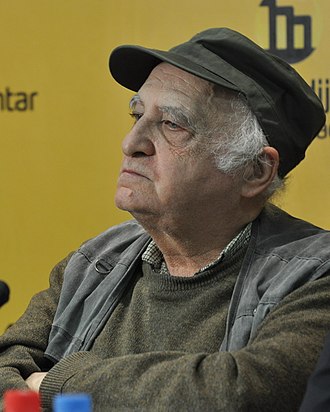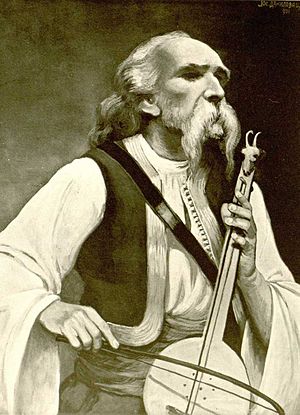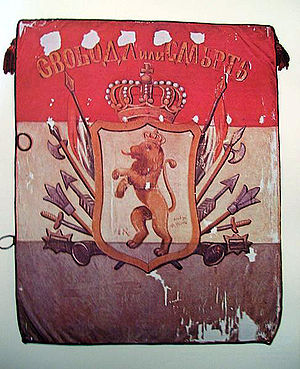Discover Your Roots
SIGN UPDiscover Your Roots
SIGN UPFilip is a male name of Scandinavian origin, meaning "Lover Of Horses." It is derived from the Greek "philos" (love) and "hippos" (horse), reflecting the affinity for horses. In Croatia, it was a common masculine given name in the 2000s. Notable individuals bearing the name include Filip Barović, a Montenegrin basketball player, and Filip Đorđević, a Serbian footballer. The name is also found as a surname, associated with prominent figures such as Miroslav Filip, a Czech chess grandmaster, and Pavel Filip, a Moldovan politician. Filip's popularity extends to various fields, including sports, literature, and politics, showcasing its enduring significance. Whether as a given name or surname, Filip carries the timeless significance of love for horses within its Scandinavian roots.

Filip David (1940–2025) was a prominent Serbian writer and screenwriter, celebrated for his compelling essays, dramas, short stories, and novels. He received the prestigious Andrić Prize in 1987 for his remarkable short story collection "Princ Vatre," and his novel "Kuća sećanja i zaborava" earned him the esteemed NIN Award for the best Serbian novel of 2014. David, born into a Jewish family in Kragujevac, tragically lost family members in the 1941 Kragujevac massacre. A distinguished alumnus of the University of Belgrade, he played a pivotal role in the literary and cultural landscape. He was a resolute advocate for social and political change, co-founding the "Independent Writers" society and the "Belgrade Circle," and opposing the ruling government. Known for his extensive body of work, including thought-provoking novels like "Hodočasnici neba i zemlje," "San o ljubavi i smrti," and "Kuća sećanja i zaborava," David's legacy continues to inspire and captivate readers. His thought-provoking essays and impactful television dramas have left an indelible mark on Serbian literature and society. Filip David's enduring contributions will be remembered and cherished for generations to come.

Filip Müller (3 January 1922 – 9 November 2013) was a Jewish Slovak Holocaust survivor and a member of the Sonderkommando at Auschwitz, the largest Nazi German concentration camp during World War II. Müller was born in Sereď, Czechoslovak Republic. He was sent to Auschwitz II in April 1942 and was assigned prisoner number 29236. As part of the Sonderkommando, he witnessed and participated in the operation of the gas chambers and crematoria, handling the bodies of the victims. Müller's testimony reveals the harrowing experiences of the Holocaust, including his survival of the Auschwitz liquidation and his decision to remain alive to bear witness to the atrocities. He provided crucial testimony during the Frankfurt Auschwitz trials in 1964 and published his testimony in the book "Auschwitz Inferno: The Testimony of a Sonderkommando." Müller's account, although not without controversy, serves as a chilling reminder of the horrors perpetrated during the Holocaust. After living in the West, Müller passed away in Mannheim, Baden-Wurttemberg, at the age of 91. His legacy as a Holocaust survivor and witness lives on, ensuring that the world never forgets the atrocities of the past.

Filip Višnjić, pronounced [fîliːp ʋîʃɲitɕ], was a Serbian epic poet and guslar renowned for his storytelling abilities and contributions to the Serbian oral tradition. Born in 1767 near Ugljevik, Višnjić went blind at a young age due to smallpox and lost his family early in life. He began playing the gusle and reciting epic poetry in his twenties, wandering the Balkans as a vagabond. Višnjić's talent attracted influential figures, and in 1809, he married into an affluent family and relocated to Serbia, where he experienced and chronicled the First Serbian Uprising against the Ottomans. Following the uprising's suppression, Višnjić and his family resettled in Austrian-controlled Syrmia. His work was preserved in writing by the linguist Vuk Karadžić and later published as part of a collection of Serbian epic poetry, receiving widespread acclaim. Višnjić continued to perform and recite his poems until his death in 1834. He is revered as one of Serbia's greatest gusle players and is often referred to as the Serbian Homer. The village where he lived was renamed Višnjićevo in his honor. Filip Višnjić's legacy as a celebrated epic poet and guslar continues to be cherished within Serbia and beyond.

Filip Solongo Hofman Andersen, professionally known as Filip Chinzorig, is a notable footballer who hails from Denmark and currently plays as a defender for Loyola FC in the Philippines Football League. Starting his career with Karlslunde IF, he later joined Brøndby IF's academy and progressed to the under-19 team, accumulating numerous appearances. Despite not making a first-team debut, his dedication and potential were evident. In the quest for more playing time, Chinzorig made a move to FC Roskilde and later to FC Slavia Karlovy Vary in the Czech Republic before joining FC Ulaanbaatar in Mongolia. His international career is equally remarkable, having represented both Denmark and Mongolia at various levels, demonstrating his versatility and commitment. With an impressive track record and a promising future, Chinzorig's journey in football continues to captivate fans and enthusiasts alike.Keywords: Filip Chinzorig, footballer, Loyola FC, Brøndby IF, FC Roskilde, international career, Denmark, Mongolia

Todor Todorov Topalov, also known as Filip Totyu, was a prominent Bulgarian revolutionary during the Bulgarian National Revival period. Born in 1830 in the hamlet of Gartsite, he became a voivoda of an armed band of volunteers and played a significant role in the struggle against Ottoman rule. Totyu's life was marked by conflict with the Ottoman authorities, leading him to flee into the Balkan Mountains and become a hajduk. Despite being captured and interned multiple times, he continued his resistance activities, eventually crossing the Danube into Serbia and participating in the Second Bulgarian Legion. He later lived in Romania and Russia, where he received a state pension. Totyu's involvement in various conflicts, including aiding the Serbs and participating in the Russo-Turkish War, ultimately contributed to the Liberation of Bulgaria. Following the country's liberation, he settled in the village of Dve Mogili, engaging in agriculture until his passing in 1907. Today, museums in Voneshta Voda and Dve Mogili honor his legacy. Todor Todorov Topalov's enduring contributions to Bulgaria's history and struggle for independence are remembered and celebrated to this day.
All images displayed on this page are sourced from Wikipedia or Wikimedia Commons.We use these images under their respective Creative Commons or public domain licenses. Wherever applicable, author attributions and license information are provided. If you believe an image is used incorrectly or outside its license terms, please contact us so that we can review and correct the issue.